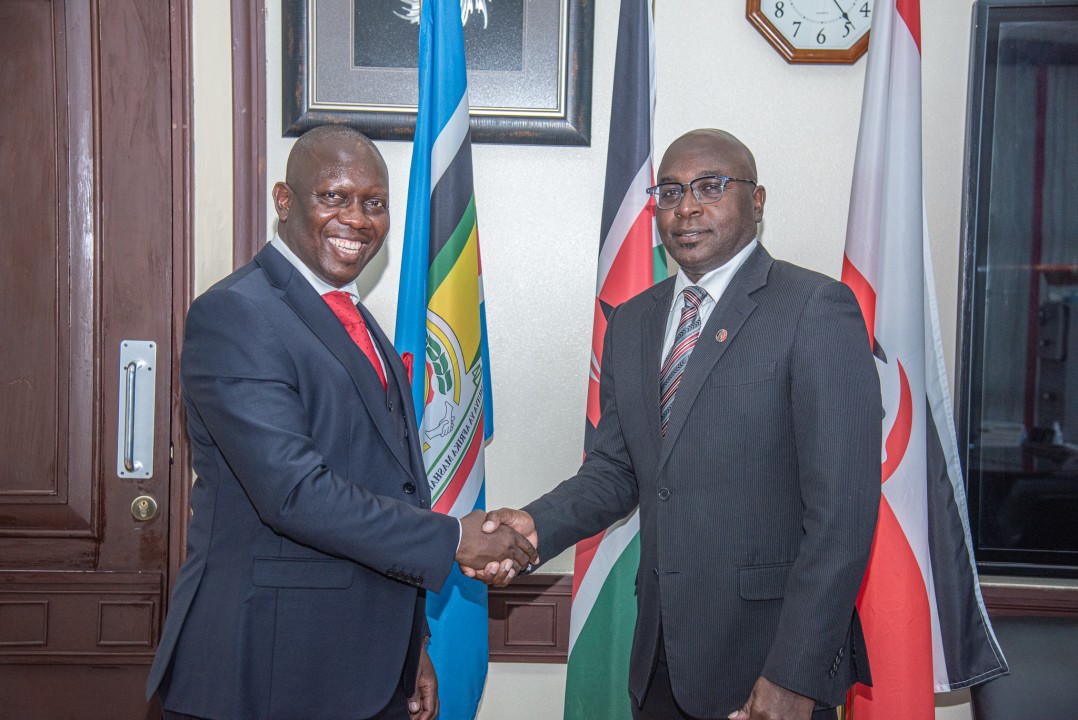By REUBEN MUSONIK, THE DISPATCH DIGITAL
In a ruling that highlights significant flaws in Kenya’s public procurement system, the Public Administrative Review Board (PARB) has overturned the Kenya Revenue Authority’s (KRA) decision to award a Ksh 859 million contract for cleaning and garbage services to a single firm. This decision, made public on August 23, 2024, has ignited widespread discussions regarding transparency and financial responsibility in public tenders.
The saga began with the KRA setting an initial budget of Ksh 424 million for the cleaning and garbage services contract. However, due to a series of what the PARB described as “flawed tendering decisions” and mishandling of the bidding process, the budget escalated to an alarming Ksh 859 million — more than double the original estimate.
This significant overrun is indicative of inefficiencies within the bidding system or, worse, an intentional inflation of the budget to accommodate unnecessary costs. Such discrepancies cast doubt on the integrity of the tendering process and raise suspicions of foul play.
PARB’s decision to overturn the tender award stems from evidence that KRA failed to follow proper procurement laws. The board cited numerous procedural errors, including failing to adhere to mandatory evaluation criteria, biased decision-making in favor of a specific bidder, and general non-compliance with Kenya’s public procurement regulations.
One of the most critical findings was that KRA did not conduct a transparent evaluation of bids, raising questions about potential favoritism or corruption within the institution. The board’s intervention underscores the need for stricter oversight in Kenya’s public procurement system to avoid such mishaps in the future.
The Kenyan public has not taken kindly to these revelations. Posts on social media express a mix of frustration and skepticism regarding KRA’s handling of the contract. Many users see this as yet another example of the deep-rooted corruption that continues to plague the country’s public procurement system.
A recurring sentiment is the belief that public tenders are often mishandled to benefit a few well-connected firms. Some users on X pointed out that such overruns in the budget could very well indicate an attempt to siphon off funds through insider deals.
This public outcry is part of a broader conversation about transparency and corruption in Kenya, particularly within institutions that manage taxpayer money. Calls for reforms and better oversight have grown louder in the wake of this scandal.
Financial and Operational Implications
Financial Impacts: The KRA budget overrun of Ksh 435 million directly affects taxpayers, who may bear the brunt of the mismanagement. This could result in increased costs for services or even cuts to other essential public services to cover the shortfall.
Operational Delays: The overturning of the tender award could result in delays in the cleaning and garbage services, potentially impacting the operations of KRA. If the contract continues to be contested or if further investigations are launched, it could result in further disruptions and higher operational costs.
Reputational Damage: Beyond financial and operational impacts, KRA’s reputation has taken a hit. The institution, which should be held to high standards of transparency and accountability, now faces a crisis of public trust.
What Can Be Done: The Way Forward
For KRA and Public Institutions:
- Stronger Internal Audits: The KRA and other public bodies need to introduce stricter internal checks and balances. Third-party audits could help ensure the transparency and integrity of the procurement process.
- Procurement Training: Staff involved in tender processes should receive additional training on adhering to Kenya’s procurement laws and ensuring fairness and transparency.
- Transparent Bidding Platforms: Introducing real-time online bidding and tracking systems would allow the public to monitor tender processes, reducing the likelihood of mishandling.
- Take action against corruption: Corruption suspects should be arrested, interdicted and prosecuted fast.
For PARB and Regulatory Bodies:
- Continued Scrutiny: PARB should continue its oversight role, especially on high-value contracts. This means conducting thorough reviews and holding public institutions accountable for any discrepancies in their tendering processes.
- Proactive Audits: Rather than waiting for complaints to arise, regulatory bodies like PARB should conduct proactive audits of major public tenders to ensure compliance with procurement laws.
Public Engagement:
- Citizen Action: Kenyan citizens, civil society, and watchdog organizations should push for more transparency in public tenders. This could include advocating for legislation that requires the publication of all tender decisions and ensuring real-time public tracking of contracts.
- Public Scrutiny: Increased public engagement and scrutiny can serve as a deterrent to malpractice. When citizens demand accountability, it becomes more difficult for public officials to manipulate the system for personal gain.
This case sheds light on systemic issues in Kenya’s public procurement processes. Mishandling tenders, inflated budgets, and lack of transparency are not isolated incidents but part of a broader issue facing many public institutions. This situation raises questions about how many other contracts might have been mishandled, inflating public expenditure without delivering adequate services.
The PARB’s decision in the KRA case serves as a critical reminder of the need for independent oversight bodies to be empowered to enforce procurement laws. It also signals the importance of continuous public pressure for reform to ensure that institutions like KRA use taxpayer money responsibly and ethically.
The KRA cleaning and garbage contract controversy is more than just a case of budget mismanagement — it is a symptom of deeper issues within Kenya’s procurement system. While the PARB’s decision to overturn the contract provides a glimmer of hope for accountability, much more work is needed to reform public procurement in the country.
[stock-market-overview stockExchange=”NASE” width=”100%” allowSort=”true” includeChart=”false” logoMaxHeight=”20px” logoMaxWidth=”90px” height=”100%” culture=”English-US”]
